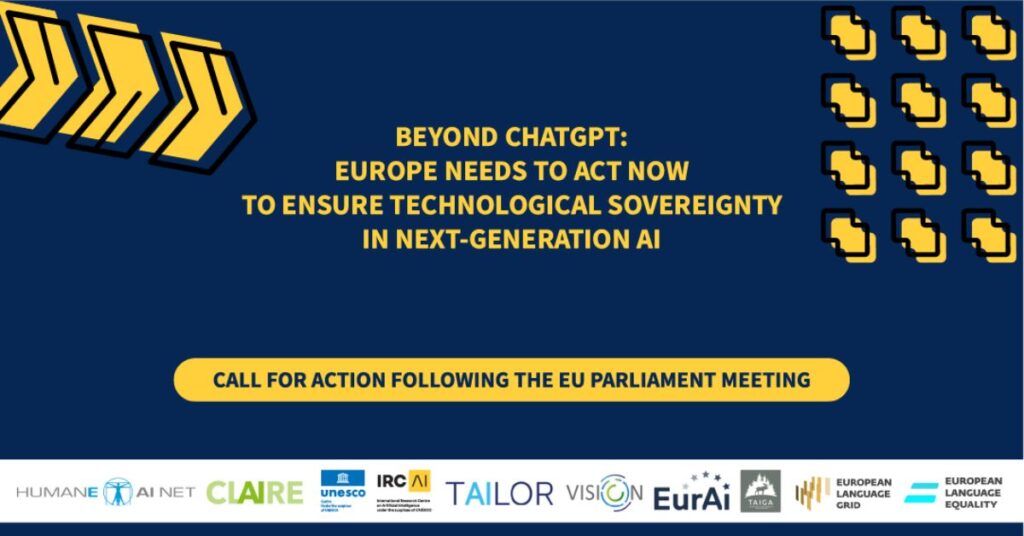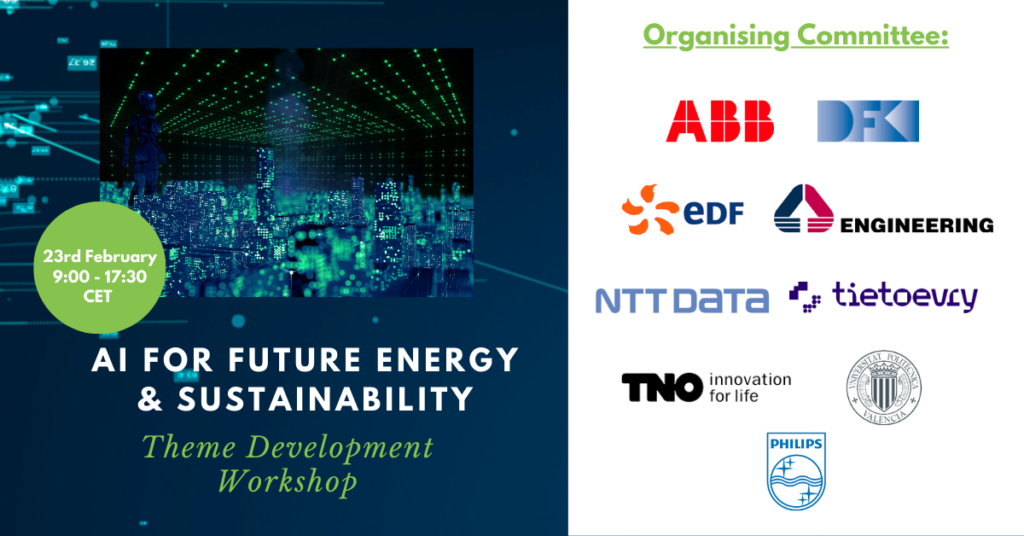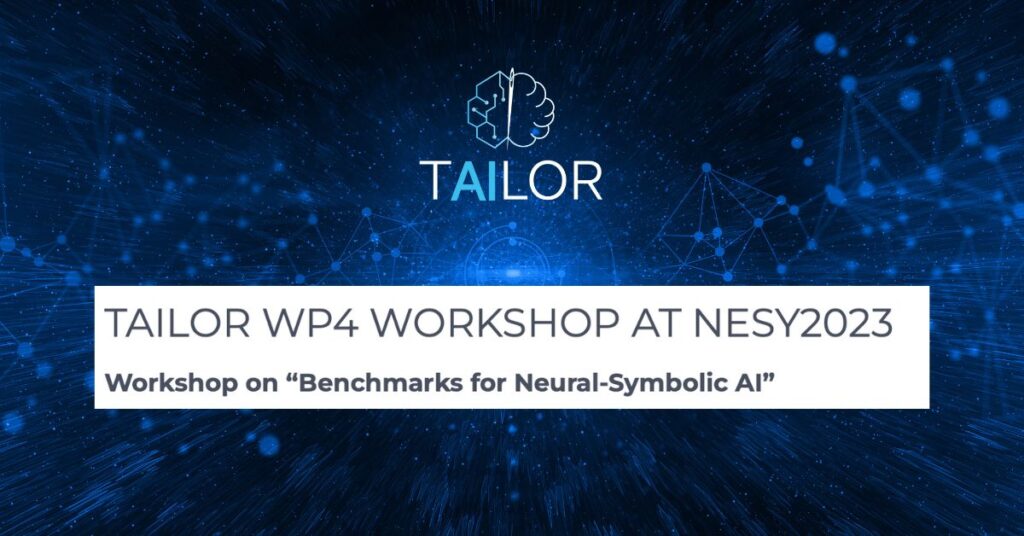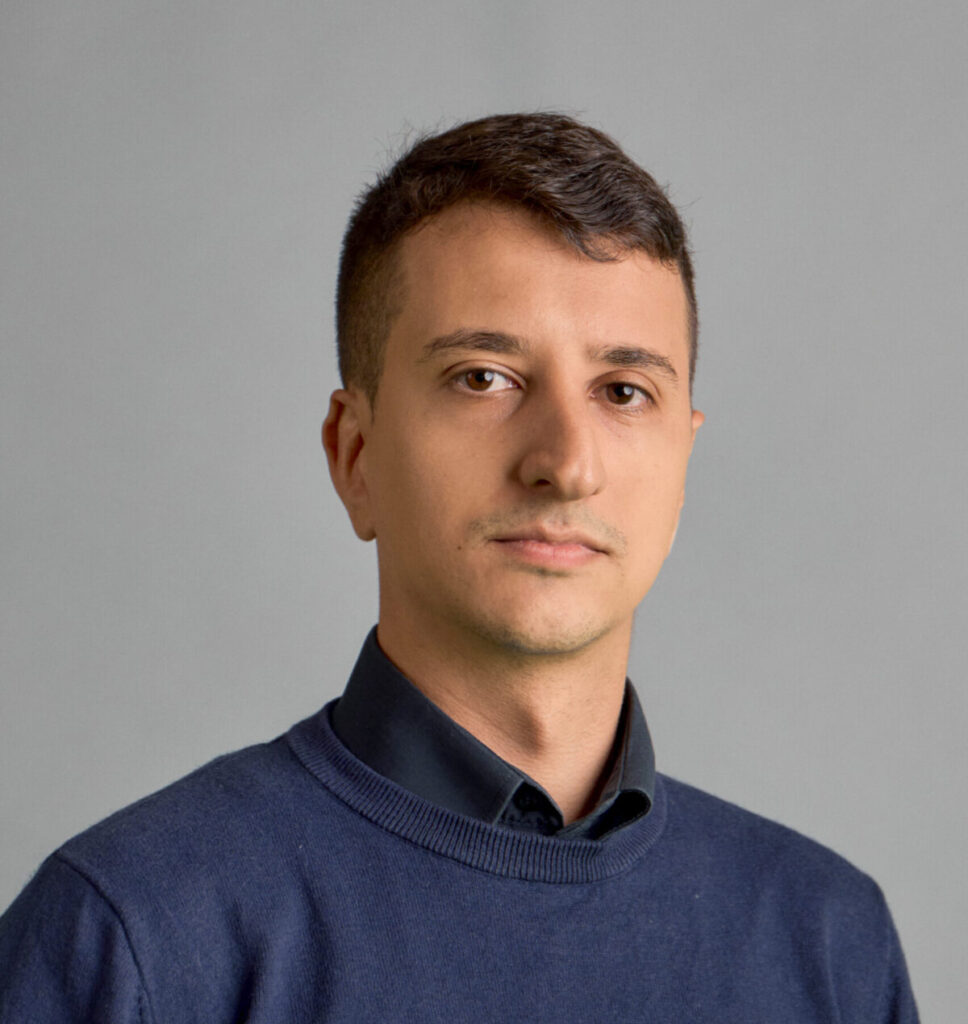BEYOND CHATGPT: Europe needs to act now to ensure technological sovereignty in Next-Generation AI – Call for Action following the EU Parliament Meeting
On May 25th, 2023 TAILOR made its contribution to the event Beyond ChatGPT: How can Europe get in front of the pack on Generative AI Models?, organised by a broad consortium of European projects and Institutions: the HumanE-AI-Net European Network of Centres of Excellence in Artificial Intelligence, the International Research Centre on Artificial Intelligence (IRCAI) under the […]









